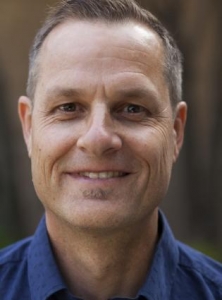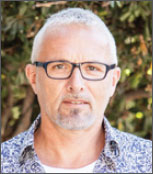First board certifications offered in lifestyle medicine
January 17, 2017
by John Weeks, Publisher/Editor of The Integrator Blog News and Reports
 In the media release, ABLM chair Wayne Dysinger, MD, MPH, pictured, draws the line in the sand about what he and his colleagues are seeking to establish with the certification. "I'm excited,” stated Dysinger, “about the ability to differentiate evidence based Lifestyle Medicine practitioners from those who say they practice Lifestyle Medicine but are not applying evidence based approaches.” The certification tests to competencies in the following areas:
In the media release, ABLM chair Wayne Dysinger, MD, MPH, pictured, draws the line in the sand about what he and his colleagues are seeking to establish with the certification. "I'm excited,” stated Dysinger, “about the ability to differentiate evidence based Lifestyle Medicine practitioners from those who say they practice Lifestyle Medicine but are not applying evidence based approaches.” The certification tests to competencies in the following areas: - Fundamentals of Health Behavior Change
- Key Clinical Processes in Lifestyle Medicine
- The Role of Physician Health and the Physician’s Personal Health
- Nutrition Science, Assessment and Prescription
- Physical Activity Science and Prescription
- Emotional and Mental Well-Being, Assessment and Interventions
- Sleep Health Science and Interventions
- Fundamentals of Tobacco Cessation and Managing Risky Alcohol Use
- Weight Management
 Dysinger and ABLM executive director, Stephan Herzog, each express excitement about the global nature of the new certification. Herzog shares that ABLM has participation “from the European Lifestyle Medicine Organization (ELMO), the Australasian Society of Lifestyle Medicine (ASLM) and the Asian Society of Lifestyle Medicine.” He believes that these engagements “makes this the first global certification effort in any field of medicine.” The ABLM takes an entrepreneurial approach to its prerequisite requirements. Applicants are not required to complete a formal fellowship or other standardized coursework. Instead, applicants are required to complete 30 hours of online education and 10 hours of conference-based education from an endorsed set of course providers. The ACLM and the Institute of Lifestyle Medicine (ILM) at Harvard figure heavily into the recognized providers—ALM’s founder Eddie Phillips, MD, serves on the ABLM board. Another focal area is study of plant-based medicine. In addition, applicants must complete a case study in which they describe their “personal experience with lifestyle medicine.” The MD/DO group must pay a $1,499 certification fee. Those Lifestyle Medicine professionals certified through ACLM pay $1299. Each pays a non-refundable registration fee of $299 and $199, respectively. Comment: Readers planning to attend the Integrative Healthcare Symposium in New York City February 23-25, 2017 will have a chance to hear one of the driving forces in the lifestyle medicine field, David Katz, MD, MPH. The Yale integrative medicine leader will deliver a 90-minute keynote, “Lifestyle is the Medicine: What's the Spoon?”
Dysinger and ABLM executive director, Stephan Herzog, each express excitement about the global nature of the new certification. Herzog shares that ABLM has participation “from the European Lifestyle Medicine Organization (ELMO), the Australasian Society of Lifestyle Medicine (ASLM) and the Asian Society of Lifestyle Medicine.” He believes that these engagements “makes this the first global certification effort in any field of medicine.” The ABLM takes an entrepreneurial approach to its prerequisite requirements. Applicants are not required to complete a formal fellowship or other standardized coursework. Instead, applicants are required to complete 30 hours of online education and 10 hours of conference-based education from an endorsed set of course providers. The ACLM and the Institute of Lifestyle Medicine (ILM) at Harvard figure heavily into the recognized providers—ALM’s founder Eddie Phillips, MD, serves on the ABLM board. Another focal area is study of plant-based medicine. In addition, applicants must complete a case study in which they describe their “personal experience with lifestyle medicine.” The MD/DO group must pay a $1,499 certification fee. Those Lifestyle Medicine professionals certified through ACLM pay $1299. Each pays a non-refundable registration fee of $299 and $199, respectively. Comment: Readers planning to attend the Integrative Healthcare Symposium in New York City February 23-25, 2017 will have a chance to hear one of the driving forces in the lifestyle medicine field, David Katz, MD, MPH. The Yale integrative medicine leader will deliver a 90-minute keynote, “Lifestyle is the Medicine: What's the Spoon?”



















SHARE